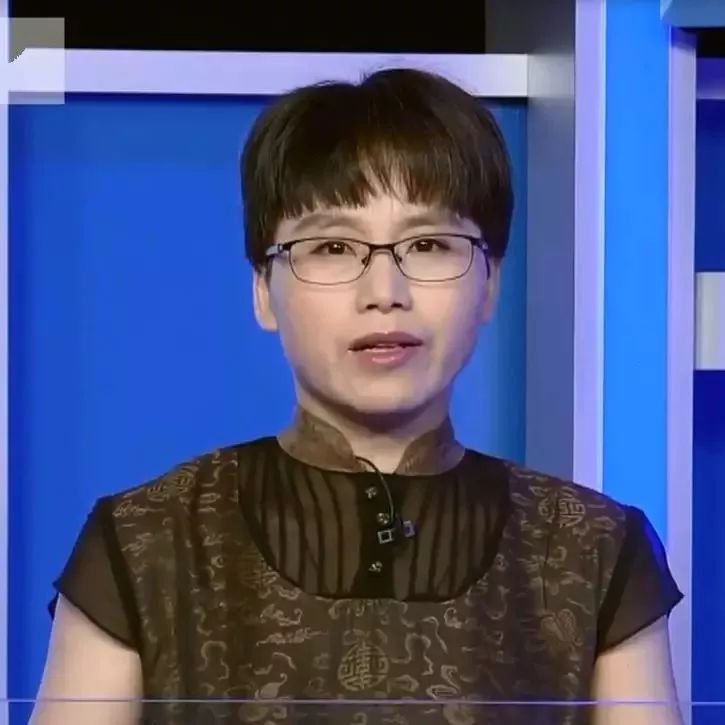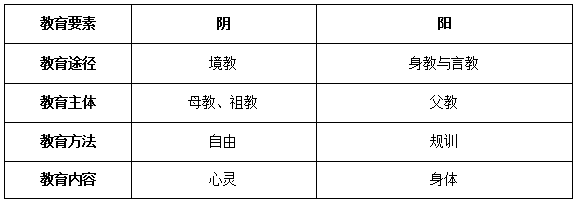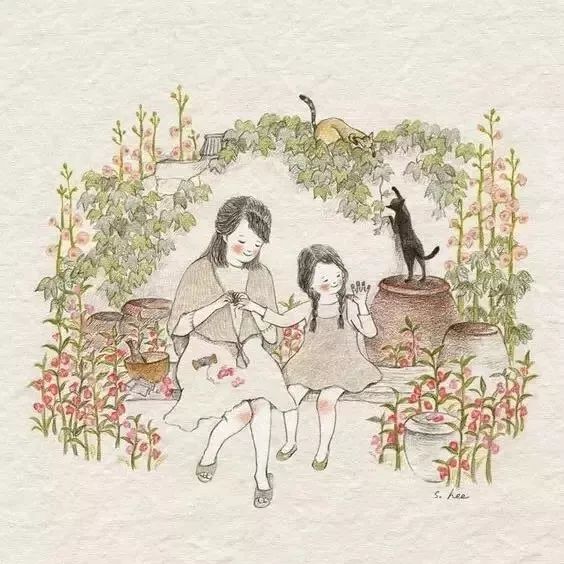When it comes to raising children, parents certainly place great importance on it, but promoting a healthy and balanced development for children is not an easy task.
Eastern culture particularly emphasizes the balance of Yin (阴) and Yang (阳), and the various elements of family education embody the principles of Yin-Yang interaction and balance.
Imagine, what would happen if there were only rules without love? What if there were only love without rules?

Today at the “Zhejiang Parent School,” Teacher Gan Jianmei from Zhejiang Normal University Hangzhou Preschool Normal College will utilize the theory of Yin-Yang balance from traditional Chinese culture to explore the path of Yin-Yang balance in family education, thereby grasping the middle way of family education and providing appropriate educational support for children.

Pre-Class Preparation
Before the class, of course, we need to introduce today’s main speaker.
↓↓↓

Gan Jianmei
PhD in Education, Associate Professor and Master’s Supervisor at Zhejiang Normal University, Director of the Social Education Branch of the Zhejiang Preschool Education Research Association. She mainly focuses on research in children’s moral education, social education for preschool children, and family and community education for preschool children. She has published academic works such as “Analysis of the Modernity Issues of Moral Life in Schools” and edited the Ministry of Education’s 12th Five-Year Plan textbook “Social Education for Preschool Children”.

Pay Attention
“The Path of Yin-Yang Balance in Family Education”
Speaker: Gan Jianmei, Zhejiang Normal University Hangzhou Preschool Normal College
For those without internet access, don’t worry, I have also summarized the key points of the lecture for everyone. Parents must remember!
 What is Yin-Yang Balance?
What is Yin-Yang Balance?
Ancient Chinese philosophy tells us that Yin and Yang arise from the movements of the sun and moon in the universe, and the movement of Yin and Yang is the law of motion for all things.

The Taiji diagram is a microcosm of the theory of Yin-Yang balance.
· Everything that is sunny, outgoing, bright, ascending, warm, and in eternal motion belongs to Yang.
· Everything that is shaded, introspective, dim, descending, cold, and relatively still belongs to Yin.
All things exist in a state of mutual rooting, mutual restriction, and transformation between Yin and Yang. The theory of Yin-Yang balance can be used to understand and guide the operation of all things.
 Yin and Yang in Family Education Elements
Yin and Yang in Family Education Elements
The elements of family education mainly include: educational subjects, educational pathways, educational methods, and educational content. Each element has its Yin and Yang extremes.
The following is a relative classification of these elements.
↓↓↓

1. The pathways of family education mainly include environmental education, behavioral education, and verbal education. This means educating through the environment in a subtle way; educating through demonstration of physical and mental behavior, and educating through verbal communication. Among these, the subtle environmental education is often invisible and subtle, thus classified as the Yin extreme of the pathway. In contrast, behavioral education and verbal communication are visible and can be consciously observed and grasped, thus classified as the Yang extreme of the pathway.
2. The subjects of family education mainly include fathers, mothers, and grandparents. Among these, fatherly education is often expansive, outgoing, and active, thus classified as the Yang extreme of the educational subject. In contrast, motherly education and grandparental education are often nurturing and introspective, thus classified as the Yin extreme of the educational subject.
3. The methods of family education mainly discuss freedom and discipline. Freedom refers to providing children with time, space, and opportunities for independent exploration; while discipline mainly refers to rules and training guidance. From a conscious perspective, the method of freedom is implicit and flexible, thus classified as the Yin extreme of the method, while rules are explicit and rigid, thus classified as the Yang extreme of the method.
4. The content of family education, from different angles, can have different expressions. Here, it is mainly presented from the perspective of physical and spiritual development. Attention and nourishment for physical development are visible, thus classified as the Yang extreme of the content, while spiritual development is invisible, thus classified as the Yin extreme of the content.

 Balance of Environmental, Behavioral, and Verbal Education
Balance of Environmental, Behavioral, and Verbal Education
Be cautious: neglecting environmental and behavioral education while relying too much on simplistic verbal education.
Additionally, parents should be wary of the following behaviors that are detrimental to children’s growth: vulgar language; irritable temper; disharmony in marital relationships; bad habits; and negative preferences.
Key to Balance: Environmental education as the foundation, behavioral education as the key, and verbal education as the support.
The focus of environmental education as the foundation is to create a good family communication and cultural atmosphere; the focus of behavioral education as the key is to lead by example; and the focus of verbal education as the support is to ensure that verbal communication is warm, concise, and clear.

 Balance of Maternal, Paternal, and Grandparental Education
Balance of Maternal, Paternal, and Grandparental Education
Be cautious: excessive involvement of grandparents in child-rearing, leading to a lack of paternal or maternal education.
Both situations have their drawbacks; grandparental care can lead to overindulgence, while the absence of paternal education can weaken gender identity.
Key to Balance: Maternal and paternal education are core, while grandparental care is supportive.
Among these three educational subjects, maternal and paternal education are core. For early childhood, mothers bear more nurturing and educational responsibilities, while fathers should not neglect their educational responsibilities. They can support mothers or participate in their children’s education as much as possible to shape their children’s character. Grandparents mainly share some of the daily or caregiving responsibilities with parents, playing a supportive role, and should not dominate the educational responsibilities of their grandchildren, as this is not conducive to establishing healthy parent-child relationships.

 Balance of Freedom and Discipline
Balance of Freedom and Discipline
Be cautious: excessive freedom while neglecting necessary discipline, or overly strict discipline while lacking freedom.
Excessive freedom refers to unprincipled indulgence of children, while overly strict discipline often manifests as constant restrictions on children’s behavior. The lack of freedom for exploration can affect children’s sensory, imaginative, and creative development; the lack of discipline can affect children’s safety and social cooperation.
The key to balance is: allowing children to explore freely without compromising safety and the rights of others, while providing necessary rule guidance based on the situation.
Free exploration needs to be conducted in a safe environment that does not infringe on the rights of others. Therefore, parents should create a safe environment for children to explore freely, allowing them ample opportunities to discover themselves. However, without discipline, children cannot develop a good sense of boundaries and rules, which can affect their safety and social cooperation. Thus, parents have the responsibility to teach children the rules and boundaries they should follow in different life situations, what is allowed, and what is not, which helps children adapt socially. Rule guidance should start with establishing family rules, such as respect for elders and politeness towards family members.

 Balance of Physical and Spiritual Nourishment
Balance of Physical and Spiritual Nourishment
Be cautious: focusing only on the visible body while neglecting the invisible spirit.
Because the body is the material basis of the spirit, and the spirit is the spiritual nourishment of the body.
Key to Balance:
1. Nourish children’s bodies with regular routines, exercise, and appropriate nutrition.
For children’s health, establishing a regular routine is crucial. For young children, their routines should ideally follow the natural rhythm of rising with the sun and resting with the sunset, which can provide strong nourishment for their lives. They should not stay up late or wake up late like adults. Additionally, appropriate nutrition and exercise are essential. Children’s diets should follow the principles of four lows and six musts: four lows (low sugar, low salt, low oil, low protein); six musts (high fiber, fresh, simple, seasonal, local, organic), and children should have sufficient time and space for exercise without excessive restrictions for safety.
2. Nourish children’s spirits with appropriate emotions, stories, and good deeds.
Children’s spirits need nourishment from emotions, stories, and good deeds. Therefore, parents should pay attention to children’s emotions and feelings, not just their behavioral outcomes, and tell them various good stories that nourish the spirit (various fairy tales and traditional folk stories have profound spiritual meanings and can greatly nourish children’s spirits). Parents’ kindness and good deeds are also good resources for nourishing young children’s spirits, as kindness and good deeds are a warm spiritual force and the spiritual nourishment for children’s healthy growth.

Post-Class Summary
Dear parents, the division of Yin and Yang discussed in this article is relative; from different angles and levels, the extremes of Yin and Yang can also interchange. This is one of the characteristics of the Yin-Yang balance theory, which states that Yin and Yang are not fixed extremes. What is Yin here may be Yang elsewhere.
The balance in family education is a complex art. May parents become artists of education through their observations of children and their own growth!
Source: Education Zhijiang

